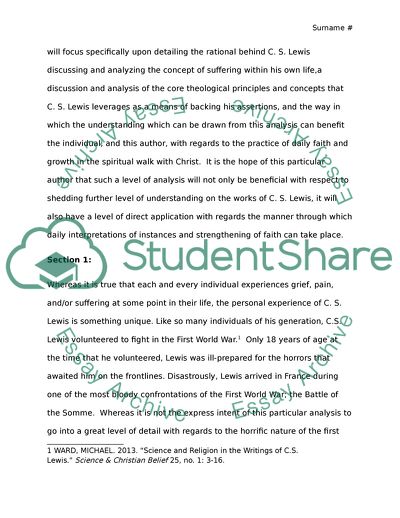Cite this document
(C.S. Lewis, Scripture and Spiritual Formation Report Example | Topics and Well Written Essays - 2250 words, n.d.)
C.S. Lewis, Scripture and Spiritual Formation Report Example | Topics and Well Written Essays - 2250 words. https://studentshare.org/religion-and-theology/1808298-suffering-and-pain-in-the-christian-life
C.S. Lewis, Scripture and Spiritual Formation Report Example | Topics and Well Written Essays - 2250 words. https://studentshare.org/religion-and-theology/1808298-suffering-and-pain-in-the-christian-life
(C.S. Lewis, Scripture and Spiritual Formation Report Example | Topics and Well Written Essays - 2250 Words)
C.S. Lewis, Scripture and Spiritual Formation Report Example | Topics and Well Written Essays - 2250 Words. https://studentshare.org/religion-and-theology/1808298-suffering-and-pain-in-the-christian-life.
C.S. Lewis, Scripture and Spiritual Formation Report Example | Topics and Well Written Essays - 2250 Words. https://studentshare.org/religion-and-theology/1808298-suffering-and-pain-in-the-christian-life.
“C.S. Lewis, Scripture and Spiritual Formation Report Example | Topics and Well Written Essays - 2250 Words”. https://studentshare.org/religion-and-theology/1808298-suffering-and-pain-in-the-christian-life.


